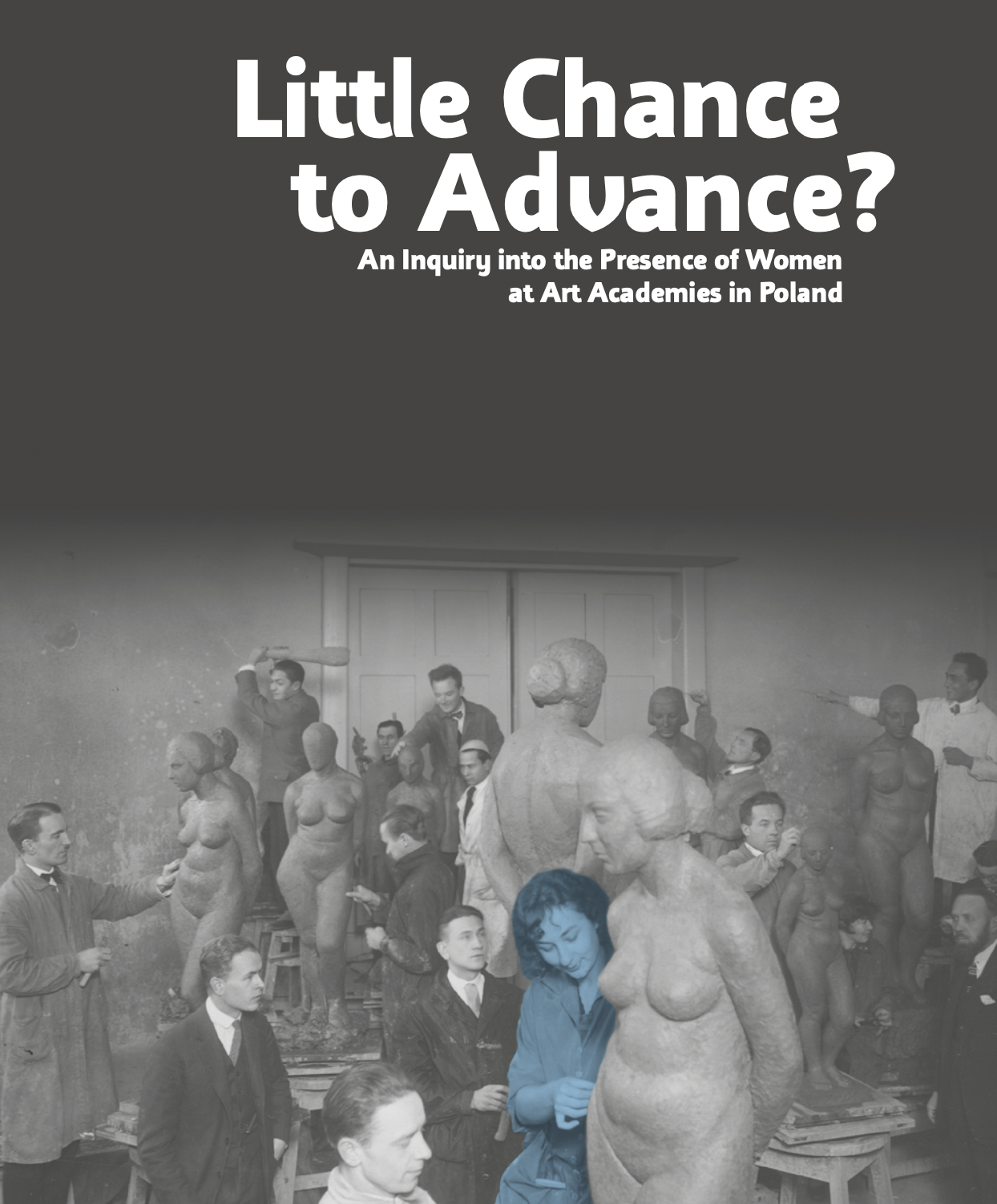Little chance to advance?
An Inquiry into the Presence of Women at Art Academies in Poland
Polish Academies of Fine Arts are exceptionally feminized as a place of study and exceptionally masculinized as a place of work. The discrepancy between these two career stages, on a scale comparable only to theological schools, is what surprised us and was the main research problem.
The Katarzyna Kozyra Foundation is pleased to present the effect of its work in the form of a report on the conducted survey of the artistic environment in terms of the presence of women at state universities in Poland.

The task of the report was to collect and organize the information obtained during the study, which was aimed at identifying cultural, environmental and psychological factors contributing to women escaping from the system of higher artistic education.
THREE GROUPS OF HYPOTHESES REGARDING THE PROBLEM:
I Aspirations, priorities and strategies
II Psychological factors
III Relationships between students and the academic staff
TEST METHOD
The universities covered by the study are the 9 most important state centres offering studies in the field of fine arts. These are mostly, but not exclusively, Academies of Fine Arts (ASP):
- ASP im. Eugeniusza Gepperta in Wrocław
- ASP im. Władysława Strzemińskiego in Łódź
- ASP im. Jana Matejki in Krakow
- ASP in Warsaw
- ASP in Gdańsk
- ASP in Katowice
- Uniwersytet Artystyczny in Poznań
- Wydział Sztuk Wizualnych and Wydział Malarstwa i Nowych Mediów – Akademia Sztuki in Szczecin
- Wydział Sztuk Pięknych – Uniwersytet Mikołaja Kopernika in Toruń
The data for the study was collected from three sources: a request for public information as well as surveys and in-depth interviews prepared by us. 966 questionnaires were analysed. 32 interviews were conducted with students and employees of the surveyed universities.
RESEARCH TEAM:
Anna Gromada
Dorka Budacz
Juta Kawalerowicz
Anna Walewska
Media:
LSE – London School of Economics and Political Science
THANKS TO:
Lilianna Antkowiak-Walewska, Klementyna Dec, Konrad Gałązka, Weronika Grzebalska, Brygida Gwóźdź, Filip Konopczyński, Monika Krygier, Jacek Michalak, Maciej Pańkow, Patrick Präg, Dagna Rams, Justyna Romanowska, Grzegorz Sadłowski, prof. Renata Siemieńska-Żochowska, prof. Kazimierz Słomczyński, Anna Sterczyńska, Joanna Szczepanik, Anna Tatarczak, Mateusz Wojcieszak, Marcin Wolniewicz, Hanna Wróblewska, Aleksandra Zbroja.
Podziękowania za konsultacje naukowe dla pracowników Instytutu Filozofii i Socjologii Polskiej Akademii Nauk: dr Katarzyny Andrejuk, dr Anny Kiersztyn, dr Anny Dyjas-Pokorskiej, prof. Franciszka Sztabińskiego, prof. Pawła Sztabińskiego, dr Kingi Wysieńskiej.
Thanks for the help and support to: Zachęta – National Gallery of Art, Kalecki Foundation, student governments, and employees of the surveyed universities.
The study received the Honorary Patronage of the Commissioner for Human Rights and the Government Plenipotentiary for Equal Treatment. The project was financed by the Minister of Culture and National Heritage.
